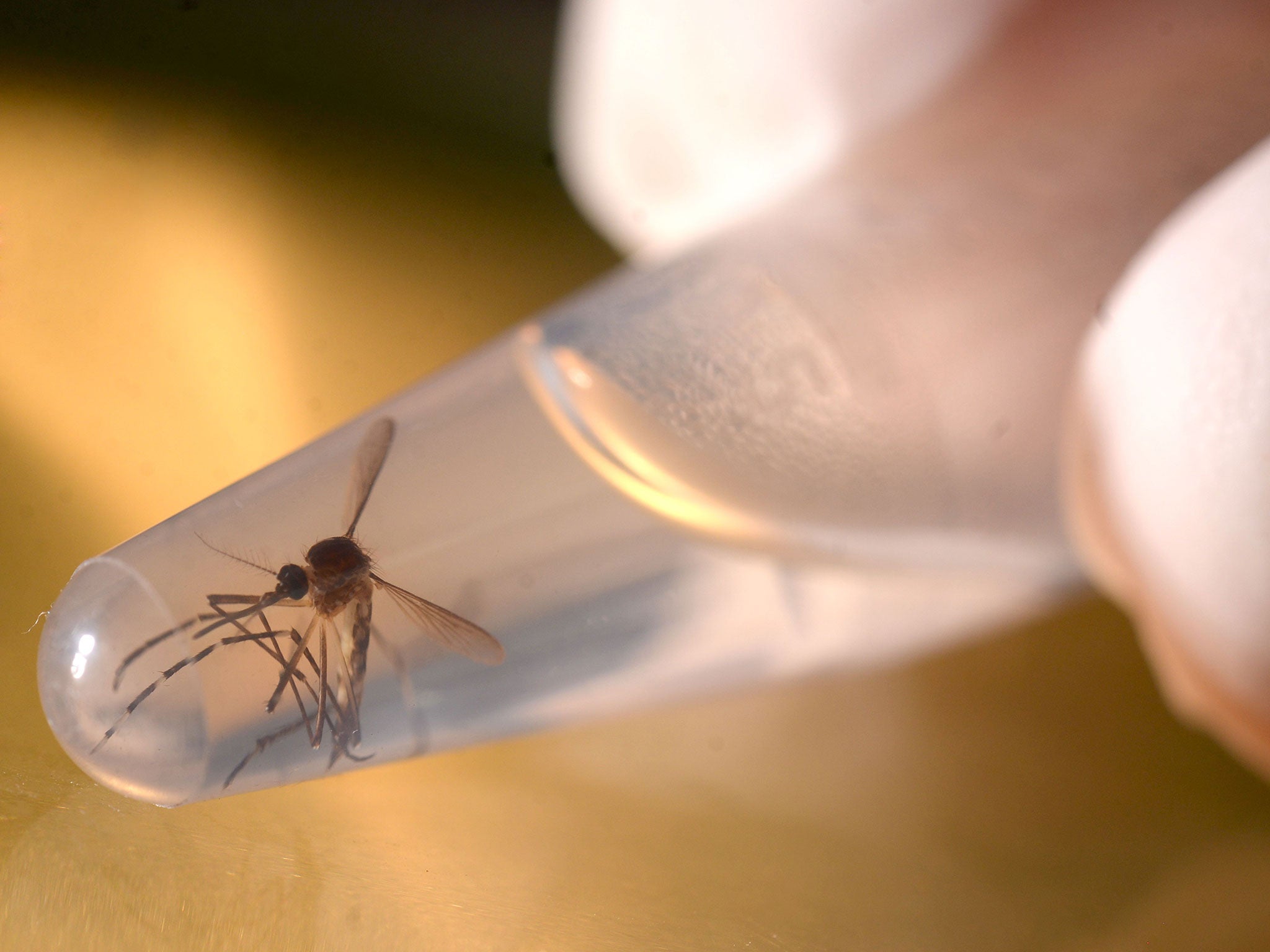Zika virus cases confirmed in Scotland
Public health officials have warned the cases do not pose a health risk to wider public

Your support helps us to tell the story
From reproductive rights to climate change to Big Tech, The Independent is on the ground when the story is developing. Whether it's investigating the financials of Elon Musk's pro-Trump PAC or producing our latest documentary, 'The A Word', which shines a light on the American women fighting for reproductive rights, we know how important it is to parse out the facts from the messaging.
At such a critical moment in US history, we need reporters on the ground. Your donation allows us to keep sending journalists to speak to both sides of the story.
The Independent is trusted by Americans across the entire political spectrum. And unlike many other quality news outlets, we choose not to lock Americans out of our reporting and analysis with paywalls. We believe quality journalism should be available to everyone, paid for by those who can afford it.
Your support makes all the difference.A number of people in Scotland have been diagnosed as having the Zika virus, it has been confirmed.
The Scottish Government stressed that the disease, which has sparked a major health alert in South America, “does not pose a public health risk” in Scotland, but said that an undisclosed number of cases had been found.
More than 50 people across the UK have been treated for the infection, which is associated with a birth defect called microcephaly, which results in children being born with abnormally small heads and brain damage.
Fear of the virus has led a number of competitors to opt out of this year's Olympic Games in Brazil, including top British golfer Rory McIlroy.
While pregnant women are being advised to postpone non-essential travel to disease hotspots, the NHS stresses that for “most people it is a very mild infection and isn't harmful”.
A Scottish Government spokesman said: “We can assure the public that Zika does not pose a public health risk in Scotland, and of the cases identified in the UK a very small number have been found in Scotland.
“The mosquito that spreads the virus is not found in the UK, and in any case would not be able to establish in Scotland because of our climate. Zika cannot be spread through person-to-person or airborne contact.”
He added: “We have already informed the at-risk groups about the risks and how to protect themselves through Health Protection Scotland's travel advice. We continue to closely monitor developments in our understanding of the Zika virus as treatments and testing regimes develop.”
Since the Zika epidemic began in 2015, nearly 5,000 cases of microcephaly have been recorded in affected regions.
On February 1 this year the World Health Organisation declared the epidemic an international public health emergency. Worldwide concern has centred on north-east Brazil but more than 20 other countries have now been affected.
So far more than 1,650 Zika infections have been reported in the US - four patients in Florida who have tested positive for the virus appear to be the first cases not linked to travel outside the US mainland.
Reporting by PA
Join our commenting forum
Join thought-provoking conversations, follow other Independent readers and see their replies
Comments